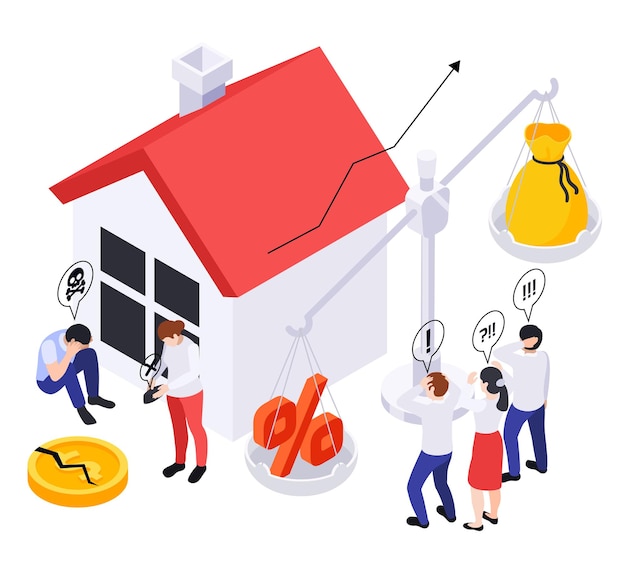When you’re buying a property and your offer gets accepted, you’ll need to let your lender know and lock in your mortgage rate. This rate lock usually lasts between 30 to 60 days. But sometimes, things don’t go as planned and you might need to extend this rate lock, also known as a mortgage interest rate extension.
This extension isn’t always free, so it’s important to be mindful of the time it takes to finalize your property purchase. A rate lock is a promise from your lender that they’ll honor a specific interest rate for a certain period. If the mortgage rates increase during this period, your lender will still honor the agreed rate. If they decrease, you can request a new rate lock.
Since rate locks typically last for 30 to 60 days, there’s a bit of pressure on borrowers to close on their homes before this period ends. If it looks like you won’t be able to close within this period, you might need to pay a mortgage rate extension fee.
This fee is calculated as a percentage of your mortgage amount, usually ranging from 0.15% to 0.4%. The higher your mortgage, the lower this percentage fee. If this isn’t the case with your lender, you might want to consider finding a new one.
For example, if you have a $100,000 mortgage with a 30-day rate lock and you need an extension, your lender might charge a 0.35% fee. This means you’ll have to pay $350 for the extension. You’ll need to weigh the cost of this fee against the benefits of extending your rate. If mortgage rates have increased during your rate lock period, causing you to pay $50 more a month for at least 120 months, paying the $350 fee for a rate extension is a better deal than paying $6,000 more in interest.
To get a mortgage interest rate extension, you’ll need to ask your lender before the deadline and explain why you need the extension. If your lender wants to keep your business, they’ll likely grant you one. If you have to pay a fee for this extension, that’s more profit for your lender. Once your extension is granted, you’ll usually have another 30 to 60 days until you’ll need to ask for another extension or cancel your transaction.
Sometimes, you might not have to pay for a mortgage rate extension. If the delay was caused by your lender, they might waive the fee. For example, if your lender’s underwriting department requires more documentation than usual and you can’t provide it in time, you can ask your lender to waive the fee.
There are many reasons why you might need or want a rate lock extension. Maybe the seller needs more time to find a new house, or you’re having trouble getting all the necessary documents to the underwriter. Maybe you’re trying to sell an asset to raise funds, or you need more time to organize your move. Maybe you’re having second thoughts about the purchase, or you’re trying to sell your current house before taking on a new mortgage. Life happens, and sometimes you just need a little more time.
Before the pandemic, it would take about 50 days on average to close on a property. Now, it’s closer to 60 days. There are many moving parts and people involved in closing a real estate transaction with a mortgage, so asking for a rate extension is quite common. As a homebuyer, one of your goals should be to avoid paying a mortgage interest rate extension fee. You can improve your chances of having the lender pay the fee by always being responsive and providing all the necessary documents in a timely manner.
Remember, your lender wants your business. If they decide to charge you a fee after you’ve been super responsive, you might decide to take your business elsewhere. Real estate is a great way to achieve financial freedom because it’s a tangible asset that’s less volatile, provides utility, and generates income. The combination of rising rents and real estate prices can build tremendous wealth over the long term. There are also more ways to invest in areas of the country where valuations are lower and net rental yields are higher thanks to crowdfunding.
